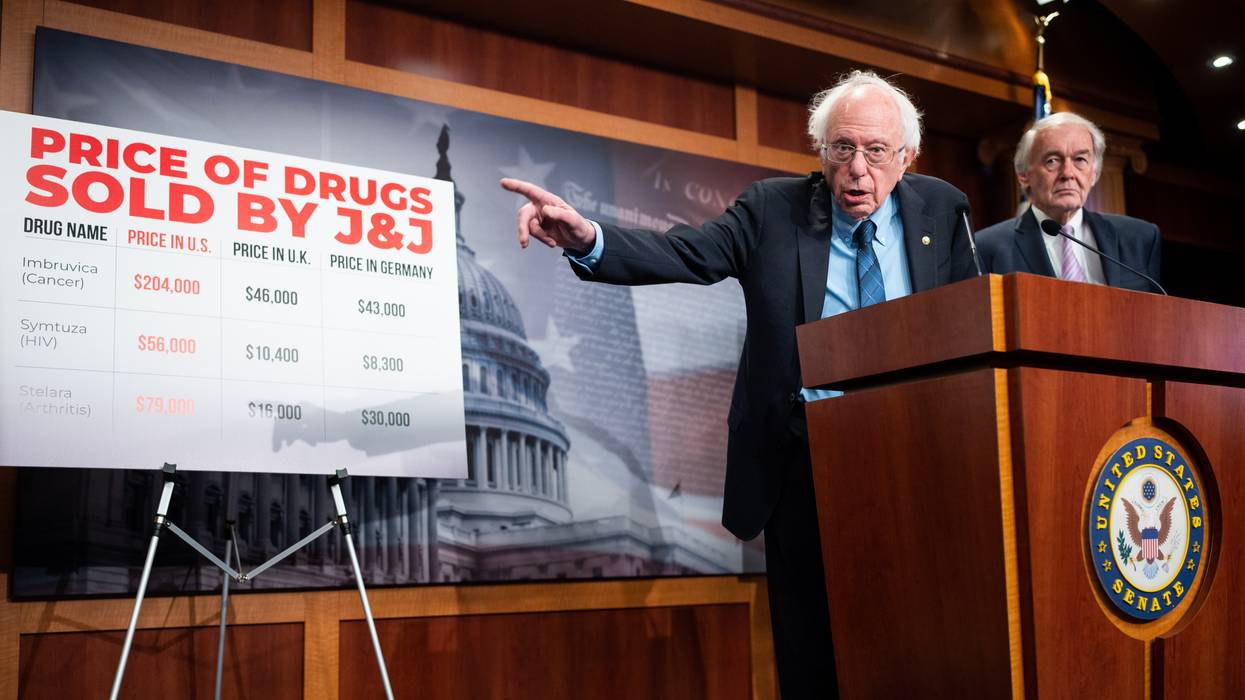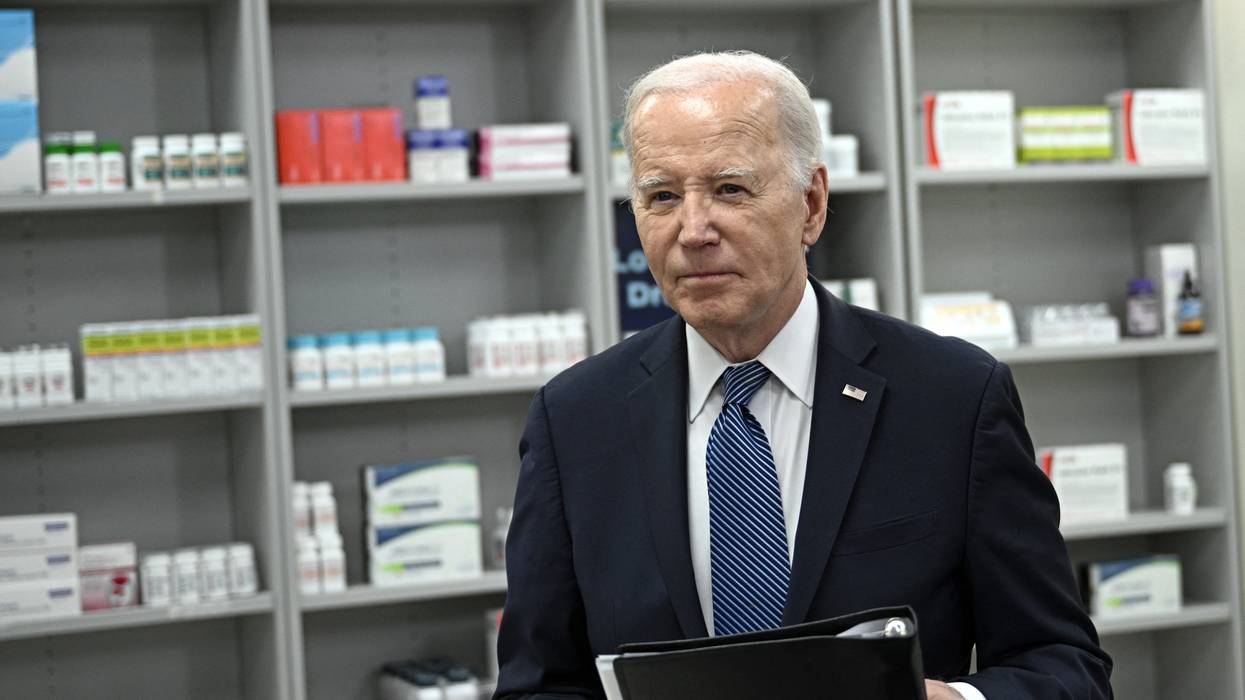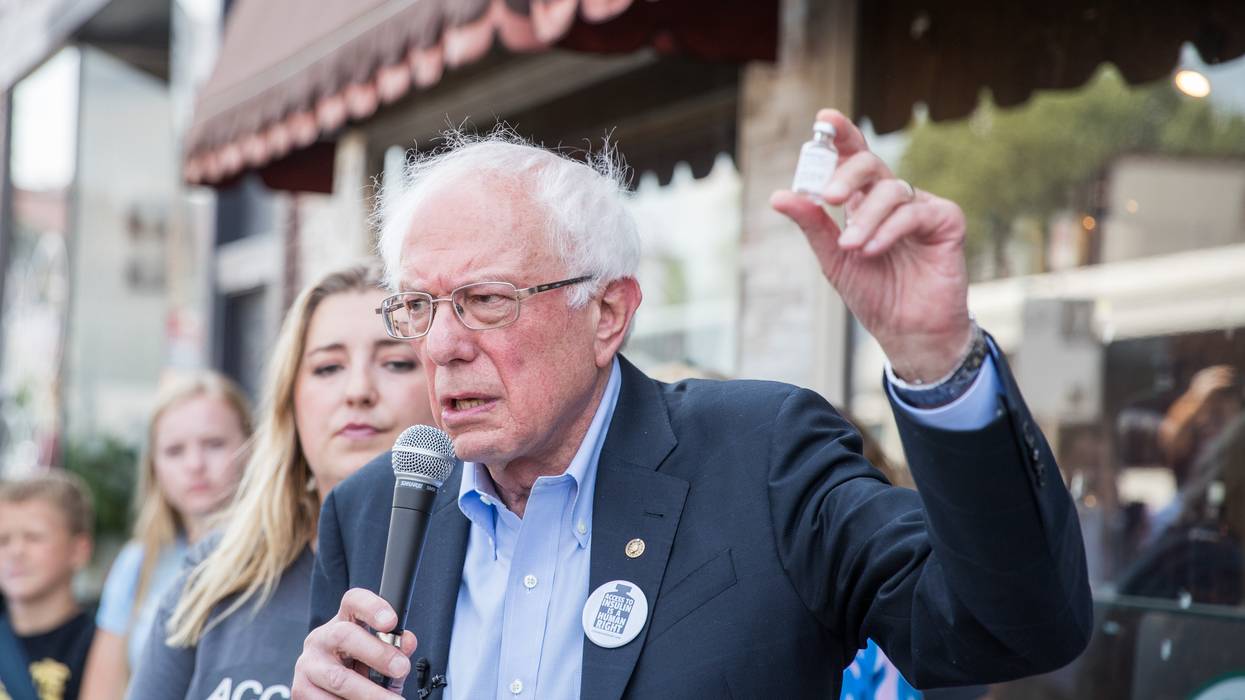Pressed by Sanders, Big Pharma CEOs Refuse to Commit to Lower Drug Prices
"We are aware of the many important, lifesaving drugs that your companies have produced," said Sen. Bernie Sanders. "But I think as all of you know, those drugs mean nothing to anybody who cannot afford it."
The CEOs of major pharmaceutical companies refused Thursday to commit to lowering the prices of some of their top-selling drugs when pressed by Sen. Bernie Sanders, who noted that the same medicines are available in other countries for a fraction of the cost that Americans pay.
"We are aware of the many important, lifesaving drugs that your companies have produced. And that's extraordinarily important," Sanders (I-Vt.) said in his opening remarks during a Senate Health, Education, Labor, and Pensions Committee hearing. "But I think as all of you know, those drugs mean nothing to anybody who cannot afford it. And that's what we're dealing with today."
Sanders asked the chief executives of Merck and Bristol Myers Squibb whether they would pledge to reduce the sky-high U.S. list prices of their cancer and blood clot medications to levels that patients pay for those drugs in Japan and Canada.
Neither agreed to make the commitment, even after they acknowledged that they still make a profit in those countries despite selling their products at much lower prices than in the U.S.
When Bristol Myers Squibb CEO Chris Boerner claimed that medicines are cheaper in Canada because they are "generally made less available" and more difficult for patients to obtain, Sanders—who has famously traveled across the U.S.-Canada border with patients seeking affordable medications—countered that "life expectancy in Canada is six years longer than it is in the United States."
Three CEOs in total—Boerner of Bristol Myers Squibb, Robert Davis of Merck, and Joaquin Duato of Johnson & Johnson—testified at Thursday's hearing, which was titled, "Why Does the United States Pay, by Far, the Highest Prices in the World for Prescription Drugs?"
Boerner voluntarily agreed to testify in early January, but Davis and Duato only agreed to appear before the Senate HELP Committee after Sanders threatened subpoenas. The committee votes to approve the subpoenas were canceled after Davis and Duato dropped their opposition to testifying.
All three of the companies represented at Thursday's hearing are currently suing the Biden administration in an effort to kill the Medicare price negotiation program established under the Inflation Reduction Act.
Before questioning the executives, Sanders noted that a growing number of patients in the U.S. have been forced to resort to the crowdfunding platform GoFundMe to help pay for their medications. GoFundMe's website notes that "thousands of individuals in need use GoFundMe each month to raise funds for lifesaving prescription drugs."
Sanders asked Davis, who made $52 million in total compensation in 2022, whether he would "commit to not accepting a single dollar more in compensation until there is not a single GoFundMe page for Keytruda," a Merck cancer drug that carries a list price of $191,000 a year in the U.S.
Davis said Merck is "very much sensitive to what's happening with patients" but would not make the commitment.
Davis told Sanders that he has never searched GoFundMe for campaigns launched by cancer patients struggling to afford Keytruda. Sanders noted in response that his staff found over 500 stories of people trying to raise funds for the cancer medication, which brought in $6.61 billion in sales worldwide for Merck last year.
"One of those stories is a woman named Rebecca, a school lunch lady from Nebraska with two kids who died of cancer after setting up a GoFundMe page because she could not afford to pay for Keytruda," Sanders said. "Rebecca had raised $4,000 on her GoFundMe page, but said the cost of Keytruda and her cancer treatment was $25,000 for an infusion every three weeks."


